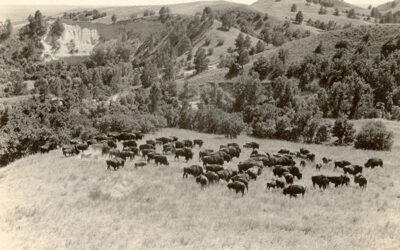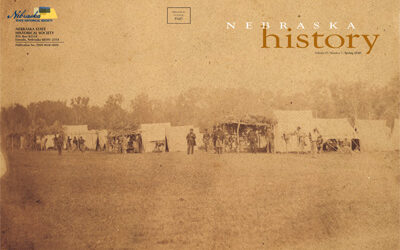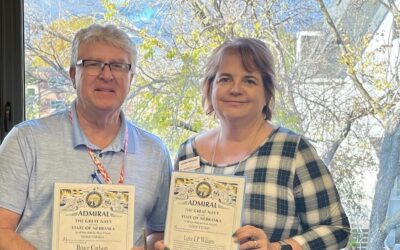Orsamus C. Dake (1832-75) was perhaps the first Nebraska writer to base his work on Nebraska’s history, landscape, and people. Born in Portage, New York, in 1832, he was ordained as a minister in the Episcopal Church in 1862, arriving in Nebraska a year later, where he founded Brownell Hall in Omaha. Dake was the first serious poet in Nebraska, and for almost a generation he was the only one. His first book, Nebraska Legends and Other Poems, was published in 1871. Midland Poems followed in 1873.
Dake was appointed the first professor of English literature at the University of Nebraska, among a total faculty of five, each drawn from a different religious denomination. According to H. H. Wilson, a former student, Dake taught creative writing:
“It is now [1923] just fifty years since I entered the University and came in personal contact with Professor Dake. During my first year in the University there were registered just one hundred students, twelve of whom were in the college classes and eighty-eight of whom were in the preparatory department, known as the Latin school. It was therefore my good fortune to come into very much closer personal relations with the members of the faculty, of whom there were only five, than would be possible under modern conditions. . . .
“Professor Dake . . . was already a man past middle age with habits of thought more or less fixed by his long experience in the pulpit. He was, however, thoroughly human, with a genial and lovable nature.
“As I look back to those early years, he seems to me to have been widely read in the best literature and to have been a discriminating and inspiring instructor. It was one of his duties to listen to, and criticize our youthful literary productions and I can now appreciate better than I could then how irksome this task must often have been. However through it all, he was patient and, by his discriminating criticism, was a great aid in developing style of expression. Perhaps his most lasting influence upon the students that came in contact with him grew out of the fact that his work as a professor inspired us with an ambition to become acquainted with the best that had been written.”



